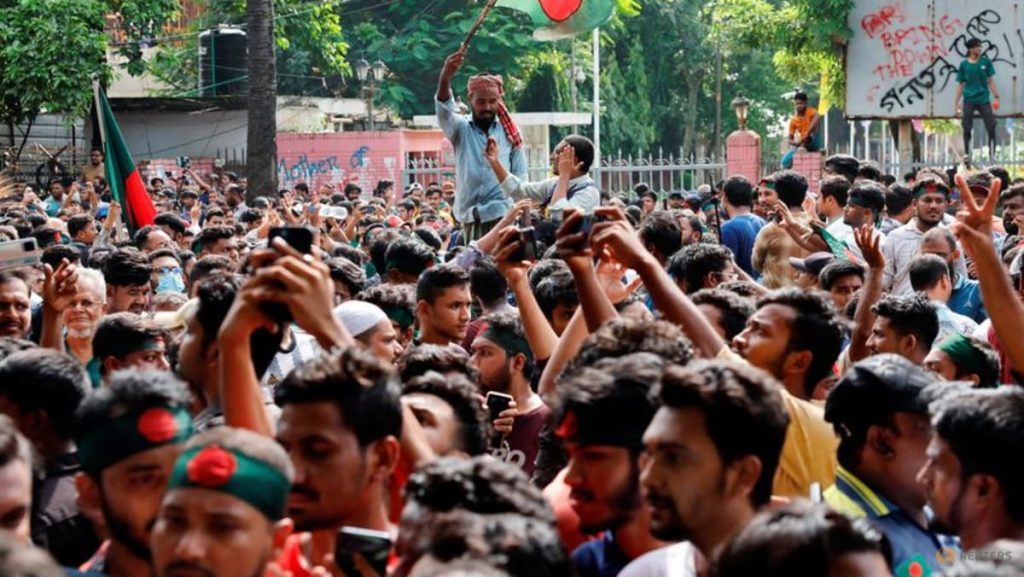Summarize this content to 2000 words in 6 paragraphs What led to Hasina’s resignation?
Barton noted that Hasina’s 15 years of rule were marred with concerns about election fraud, corruption, nepotism and authoritarian crackdowns.
“There generally seemed to be a democratic backsliding. So there were lots of deep-rooted causes for anger, of which the civil service quota was just one,” he said.
Barton said it was “not surprising” that Hasina was “ultimately forced to resign”, but given that she began her fourth consecutive term earlier this year, her resignation was not certain from the outset.
Nusrat Chowdhury, associate professor of anthropology and sociology at Amherst College, said it was obvious to observers and residents that things could not go back to the way they were.
This was due to the violence that has gripped the country in the past two weeks, as well as “the way in which the government seemed really out of touch with what the protesters were wanting”, she said.
“At the same time, I think many of us were surprised at the haste in which the events have unfolded,” Chowdhury noted.
With the quota movement being described as a “spark that started the fire”, she pointed out that a long history and “cumulative effect of grievances and resentment” were expressed through the recent protests.
What’s next?
The military, which will be forming an interim government, is seen as a nonpartisan institution and will have little power despite their position, said Chowdhury.
“It is also going to be very difficult for the military or any oppositional party to hijack the movement,” she said, pointing to the passion and commitment of the students who turned up to protest despite being shot at.
“If it’s a faith that the protesters in Bangladesh have placed on the military, it’s a temporary one, and they will be watching their actions very carefully.”
Mubashar Hasan, post doctoral researcher at the University of Oslo in Norway, said that it is “quite obvious” that the students would not appreciate a military rule, given that one of the key reasons for the situation in Bangladesh is that Hasina established a “creeping authoritarian rule in the country”.
“Obviously, students are sceptical about a military-led interim government, because that is also not likely to be a government that would shy away from authoritarian style of ruling,” he said.
“At the same time, negotiation would be key.”
However, permanent military rule is “certainly possible” and a risk, said Barton.
“Once the euphoria of what’s happened … dies down, people will start to worry increasingly about that,” he said.
Calling Bangladesh a “standout success story in development”, Barton added: “Hopefully the military realises they should be part of the success, rather than being blamed for it being threatened, but there needs to be new structures put in place.”
If students do not accept military rule, a civilian government could, with support from the military, work as an interim government and organise an election that is free and fair, said Hasan. He noted that Bangladesh has had experience with such a system.
Initially, a lot of hopes will be focused on former prime minister Zia, and people will look to her for leadership, said Barton.
“Hopefully, the release of this important leader, but also other political prisoners or people who are detained over political charges, will unfreeze a process of political contestation and openness,” he added.


